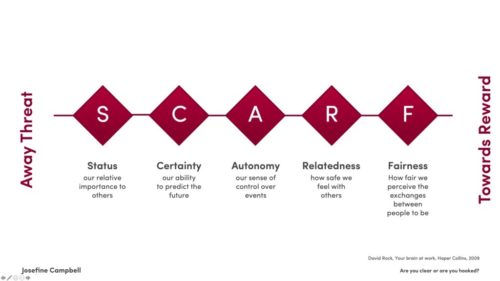
Manage low self-esteem: 3 things you should be aware of when leading others
As a leader, you will undoubtedly encounter employees with low self-esteem. Low self-esteem is like the leaky jar of the Danaids, a jar that is never filled—no matter how much you pour in. This results in people never feeling like they are enough. As a leader, it’s important to be aware if some of your employees have low self-esteem so you can lead them well and help them build more self-worth. It is possible to develop more self-esteem as an adult, and a boss can play a role in that. It benefits both the employee, the company, and the boss if the employee gains more self-esteem.




